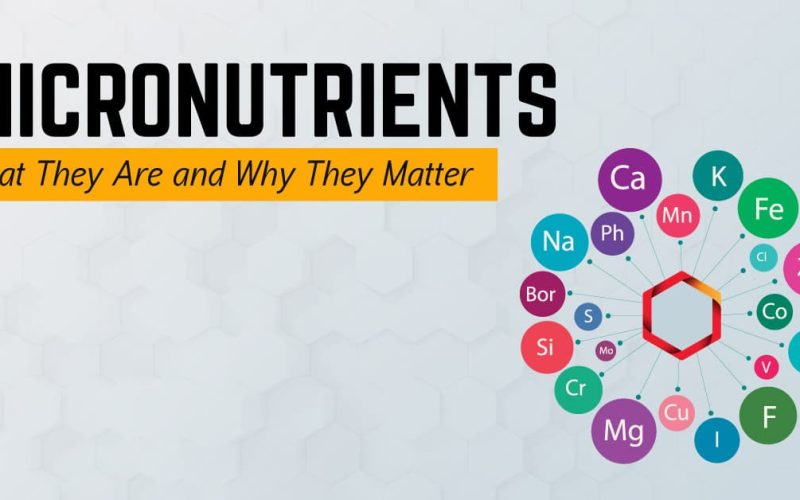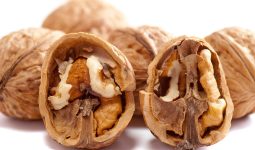Micronutrients are one of the major nutrient groups needed by our body. Unlike macronutrients that are needed by our body in large amounts, micronutrients are needed in relatively small amounts but they are also needed by our body to function properly.
Micronutrients consist of vitamins and minerals and they play crucial roles in a variety of psychological activities.
Our body is not capable of producing most vitamins and minerals so we need to get them from the food we eat. That’s why they are also called essential nutrients.
Vitamins are necessary for blood clotting, immune function , energy production and other functions. while minerals contribute to fluid balance, bone health, growth and several other processes.
Vitamins are organic compounds produced by animals and plants which can be changed or broken down by acid, air or heat. On the other hand, minerals are inorganic compounds that exist in water or soil, and cannot be changed or broken down by acid, air or heat.
The vitamins we get from our food are produced by plants and animals, while the minerals we get are the ones absorbed by them.
Getting the right amount of micronutrients from your diet is important.
However, since food sources carry a different amount of micronutrients, its important that you eat a variety of foods so you can balance your vitamins and minerals.
Types and functions of micronutrients
Vitamins
There are two categories of vitamins; fat-soluble vitamins and water-soluble vitamins.
Fat-soluble vitamins
Fat-soluble vitamins are gotten from foods with high-fat content and are best absorbed when consumed with fat.
Excess fat-soluble vitamins accumulate in your liver and fatty tissues after consumption, to be used in the future.
However, they can become toxic when over accumulated.
There are four types of fat-soluble vitamins and each one of them functions differently
Vitamin A
It’s responsible for colour vision and night vision, and also helps in cell differentiation and bone health.
It also supports both male and female reproductive processes. The recommended daily intake amount of this vitamin for adults aged 19 and above is 700 – 900 mcg.
Sources
- Carotenoids (carrots, sweet potatoes, spinach)
- Retinol (dairy, fish, liver)
Vitamin D
It assists in bone growth, regulates calcium levels in the blood and promotes proper immune function.
The required daily intake of the vitamin for adults aged 19 and above is 600 – 800 IU (International Unit).
Sources
- Sunlight
- Fish oil
- Milk
Vitamin E
Supports immune function, it is an antioxidant that keeps red blood cells healthy and fights infections. Persons older than 19 are advised to take 15 micrograms of vitamin E per day.
Sources
- Almonds
- Sunflower seeds
- Wheat germ
Vitamin K
Strengthens bones, prevent bone fractures and is central to blood clotting. The recommended daily intake of vitamin K for adults who and 19 and older is between 90 to 120 mcg
Sources
- Leafy greens
- Pumpkins
- Soybeans
- Beef liver
- Okra
Water-soluble vitamins
These are vitamins that easily dissolve in water. They are harder to store in your body and are excreted along with urine when eaten in excess.
Most water-soluble vitamins are B-vitamins and they have unique – yet related – functions.
For instance, most B vitamins serve as coenzymes that help initiate important chemical reactions. Most of these reactions are significant in producing energy.
The water-soluble vitamins with some of their sources, functions are
Thiamine (Vitamin B1)
Assists in metabolizing amino acids and carbohydrates. The recommended intake for thiamine is 1.1-1.2 mg per day.
Sources
- Fortified breakfast cereals
- Pork
- Beans
- Whole grains
Riboflavin (Vitamin B2)
Necessary for fat and carbohydrate metabolism, energy production and cell function. The RDI of vitamin B2 for adults aged 19 and above is 1.1-1.3 mg.
Sources
- Mushrooms
- Organ meats (liver)
- Eggs
- Milk
Niacin (vitamin B3).
Assists in breaking down carbohydrates and fats into usable energy. Assists the repair and replication of DNA. The adequate intake of vitamin B3 is 14-16 mg daily.
Sources
- Meat
- Beans
- Salmon
- Leafy greens
Pantothenic Acid (vitamin B5).
Necessary for synthesizing fatty acids. The RDI for adults aged 19 and over is 15 mg.
Sources
- Avocado
- Tuna
- Organ meats
- Mushrooms
Pyridoxine (vitamin B6).
Helps your body in creating red blood cells, metabolising protein and releasing sugar for energy from stored carbohydrates. The AI of pyridoxine is 1.3 mg.
Sources
- Potatoes
- Carrots
- Milk
- Fish
Biotin (vitamin B7).
Participates in the metabolism of amino acids, glucose and fatty acids. The recommended daily intake for biotin is 30 mcg.
Sources
- Sweet Potatoes
- Almonds
- Spinach
- Eggs
Folate (vitamin B9)
Assists in proper cell division and DNA synthesis, required for the maturation of red blood cells (and other cells), Plays a role in amino acid metabolism. Folate’s RDI is 400 mg.
Sources
- Liver
- Beef
- Asparagus
- Black-eyed peas
- Spinach
Cobalamin (vitamin B12)
Important in the formation of red blood cells and proper brain and nervous system function. Adults require 2.4 mcg of vitamin B12 daily.
Sources
- Clam
- Fish
- Dairy
- Meat
Ascorbic acid (vitamin C)
Necessary for the creation of collagen, hormones, DNA and neurotransmitters, enhances the absorption of iron, acts as an antioxidant. Adults are required to consume 75-90 mg of vitamin C per day.
Sources
- Citrus fruits
- Pineapple
- Bell peppers
- Tomatoes
- Potatoes
- Kiwi fruits
- Leafy greens
- Broccoli
Minerals
Minerals can be found in two forms; macrominerals and trace minerals
Macrominerals
Our body needs macrominerals in a larger quantity than trace minerals to enable them to carry out their specific functions in your body.
There are five macrominerals in total with different functions.
Calcium
It’s required for blood vessel contractions and muscle function and is necessary for proper bone structuring and functioning.
Also helps in blood clotting. The AI for males and females aged 19 and over is 2000+2500 mg.
Sources
- Leafy greens (kale, turnip greens)
- Dairy products
- Broccoli
Phosphorus
Is a component of cell membranes, RNA, DNA, and the bone’s mineral complex. It helps in the regulation of biochemical reactions by deactivating or activating various enzymes. The AI for adults for phosphorus is 700 mg per day
Sources
- Salmon
- Turkey
- Eggs
- Dairy products (yoghurt)
Magnesium
This macromineral is a key component in the blood clotting process and muscle contractions, alongside regulating the chemical reactions of over 300 enzymes in the body.
It’s also a component of the bone like calcium. Adults are advised to consume 310-420 mg per day.
Sources
- Almonds
- Cashew
- Potatoes
- whole grains
- Black beans
Sodium
It’s an electrolyte that aids nerve signal transmission, blood pressure regulation, muscle contraction and its also involved in the active transportation of glucose.
The recommended daily intake for sodium is 2,300 mg.
Sources
- Processed foods
- Canned soup
- Salt
Chloride
It is often found along with sodium. Chloride is used to produce hydrochloric acid in the stomach, aids nerve transmission and assist in immune function. The recommended chloride intake for adults aged 19 years and older is 1,800-2,300 mg daily.
Sources
- Celery
- Salt
- Seaweed
Potassium
Another electrolyte and it supports muscle function, regulates blood pressure by dulling the effect of excess sodium in the blood, and assists in nerve transmission.
The RDA for potassium for males and females aged 19 and over is 4,700mg.
Sources
- White and sweet potatoes
- Leafy greens
- Clams
- Oranges
- Tomatoes
- Bananas
Sulfur
This macromineral is a component of every living cell and is present in the amino acids cysteine and methionine. There is no recommended daily intake for sulfur.
Sources
- Garlic
- Onions
- Eggs
- Brussels sprouts
- Mineral water
Trace Minerals
Though our body only needs trace minerals in little quantities, they still play important roles in some body functions.
The trace minerals with their sources and functions;
Iron
Is an important part of countless body functions. It is responsible for distributing oxygen throughout the body.
It partakes in the development of the nervous system and the brain, supports immune function, and participates in the production of chemicals (neurotransmitters) that transport messages between nerve cells.
The daily dietary reference intake for iron is 8mg.
Sources
- Beef
- Clams
- Liver
- Tofu
- Spinach
- White beans
Manganese
Assists in amino acids, carbohydrate and cholesterol metabolism. Participates in the synthesis of cartilage in the bone and skin. The RDA for manganese is 1.8-2.3 mg.
Sources
- Peanuts
- Pecans
- Pineapple
Copper
Participates in the transportation of iron. required for the formation of connective tissues, and the stable functioning of the brain and nervous system.
The required intake for copper is 900mcg daily.
Sources
- Cashews
- Crabs
- Liver
Zinc
Necessary for immune function, normal growth, sexual maturation and wound healing. The required daily amount of zinc for adults aged 19 and above is 8-11 mg.
Source
- Chickpeas
- Crab
- Oysters
- Beef
Iodine
Assists in the regulation of thyroid hormones which are responsible for the regulation of body temperature and metabolic rate. The dietary reference intake for iodine is 150 mcg per day.
Sources
- Saltwater fish
- Legumes
- Liver
- Potatoes
- Dairy products
- Iodized salt
Fluoride
Necessary for the development of teeth and bones. Adults are required to consume 3-4 mg of fluoride each day.
Sources
- Water
- Crab
- Fruit juice
Selenium
Necessary for the synthesis of thyroid hormones help enzymes to protect against cell membrane damage and promotes immune function. The recommended daily amount for selenium is 55 mcg
Sources
- Ham
- Sardines
- Brazil nuts.
Bottom line
Micronutrient is the general term used in referring to vitamins and minerals.
Vitamins are further grouped into fat-soluble and water-soluble vitamins while minerals are classified into trace minerals and macrominerals.
Vitamins are needed for blood clotting, immune function, energy production and other functions, while minerals benefit fluid balance, bone health, growth, and other processes.
Incorporating a variety of foods into your diet will help get micronutrients in sufficient amounts.







